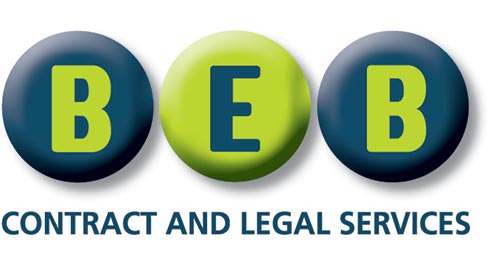How to Write Your Terms and Conditions: A Practical Guide for UK Businesses
Terms and Conditions (T&Cs) form the legal backbone of any business relationship. Whether you’re selling products online, providing services, or signing up clients, your T&Cs protect your rights, manage expectations, and reduce risk.
In this article, we’ll walk you through how to write Terms and Conditions for your business—including what to include, why they matter, and how to ensure they’re legally enforceable.
What are Terms and Conditions?
Terms and Conditions (also known as terms of service, business terms, terms of business or T&Cs) set out:
- What you’re providing (products/services)
- What your customer agrees to
- Both parties legal rights, obligations, and liabilities
They help you avoid disputes and demonstrate professionalism—whether you’re a startup, consultant, contractor, or ecommerce. Every business needs them.
Why are Terms and Conditions so important?
Terms and Conditions are words we hear daily. If we sign up to a gym membership, buy a car or even enter a competition we are prompted to accept the terms and conditions. Even radio ads always say “terms and conditions apply”.
So why is it that not everyone sees the real importance of having them in place when running a small business?
Nine times out of ten clients will come to us AFTER a problem has occurred. Yet a high percentage of those clients would have avoided any of those problems should they have had watertight, robust, and bespoke set of Terms and Conditions.
What should Terms and Conditions include?
Terms and Conditions are basically setting out the terms of sale of your business, and also the conditions that must be met by your clients in order to receive the goods or services you are delivering. Every single business no matter how big or small, need these clearly written out to determine exactly what the agreement is.
Although they may only be brought out in a worst-case scenario and when something goes horribly wrong, it is vital that they are legally enforceable and adapted specifically for your business to assure you are fully protected. This means no copy and pasting from other similar businesses!!
- Who is the agreement between?
- Clear description of what is being offered including delivery expectations
- Confidentiality and Data Protection.
- Law and Jurisdiction
- Pricing and Payment Terms
- Cancellations & Refunds
So, how do you write Terms and Conditions?
Firstly you should consider all your business processes, ask yourself how would you ideally work? What would your ideal client look like and how would that process work? Break it all down in a step by step ‘how to guide’.
- How do you quote your clients?
- How do you perform your services?
- What are your client’s obligations?
- How can they cancel?
- And most importantly, how do you get paid?
Once you have these gathered together and written them all out, it will form a good basis for your terms and conditions to work from. These become your most important clauses.
Then ask yourself what would worst case scenario be in your process:
- What could go wrong?
- If you had the most annoying frustrating customer ever, how could you protect your business from it?
- What would or could they likely want to complain about?
- Again I repeat, worst case scenario!
Write in clear, plain English
Clarity is key, and Trading Standards are hotting up on it. (NB: Trading Standards is the consumer organisation responsible for this in the UK. If you are in another country, you will need to check out the equivalent organisation in your country via your own government’s website.)
Organise the document well, and write it in reasonably plain English. Bear in mind that if you deal with consumers, they have more rights than when you are dealing business to business. You do not want consumers claiming to not have understood what they are entering into. If you have industry-specific jargon, or complex terms that are referred to a number of times in your document, define them.
Definitions should be in a standalone clause listing all these terms and their meanings, before the main body of your agreement. For a more coherent agreement we would suggest using clause numbers and titles, plainly showing what you are explaining.
Further items to write about
Another example of good practice would be to state how and when your contract with them is formed. This shows when your contractual obligations to each other begin.
By writing this it helps in the case of any claims over breaches of contract. And because it clearly states when your begin your legal obligations to each other, it makes it simple to enforce in courts or other legal dealings that in fact there is no question over whether a contract exists in the first place.
And finally…
And a further important note in relation to legalities: ensure your terms and conditions contain your full registered name, any trading names, your company number, and registered address! A simple thing to add to make sure they are legally enforceable.
Although in theory it’s possible for you to write your own Terms and Conditions, it is recommended to seek legal advice from experts like us at BEB when writing them up – either to check you have got everything right, or to draft them from scratch.
Next Steps?
If you need any more help with a legal contract, contact BEB. We can write a bespoke business contract to suit your exact needs.
BEB are contract law specialists based in Northampton. We draft bespoke and well written business contracts on a fixed price basis. Our legal packages offer flexibility depending on the number of documents you require. Whether you require a business to consumer or business to business contract we are here to help!
We are contract drafting and contract review providers. We can advise and negotiate all contracts to protect you from unfair terms and conditions as well as support you with any ongoing contractual issues – we would be like your very own comprehensive in-house legal department.
We also offer debt recovery services, relieving you from chasing late payments and improving your cash flow.
If you need any of these legal and contract services get in touch with us today on 01604 217365 or email us at info@bebconsultancy.co.uk
Free Resources
Small Business Owners Guide to Contracts
The Construction Review Checklist

